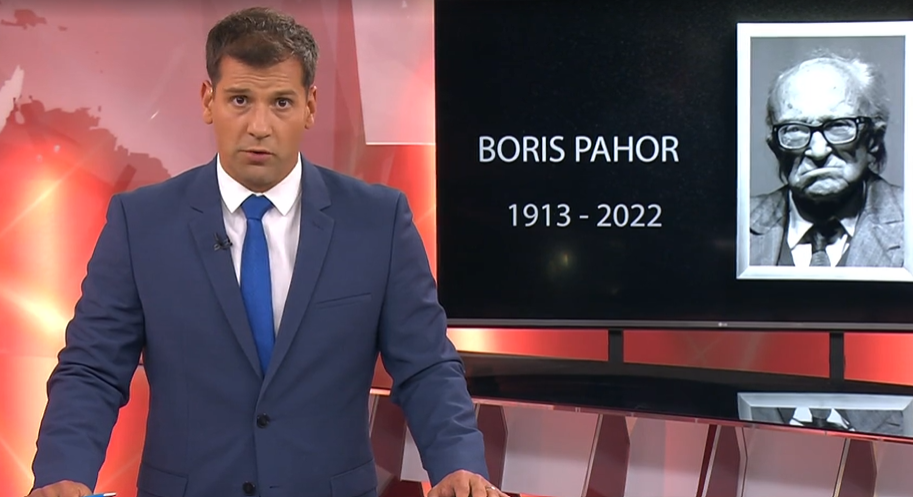By: Ana Hribar / Nova24tv
“And it was that national consciousness that helped him brave three totalitarian regimes: fascism, Nazism, and capitalism,” was one of the statements in a report on the late Boris Pahor on the news programme Svet (the World) on the commercial television station Kanal A. The fact that a news media outlet with nationwide coverage can afford such a slip-up – using the word capitalism – which is, in principle, an economic and not a political system – is shameful and unacceptable. Of course, the third totalitarianism that strongly marked Pahor and made his life miserable was communism.
Following the sad news that the Trieste writer Boris Pahor had passed away at the age of 108, many media outlets reported on this, mostly stressing the importance of his warning of the dangers of the totalitarian regimes he had to endure over the years. We knew that fascism and Nazism were two terrible totalitarian regimes, but we did not know that capitalism was also one – until we heard this (nonsense) on the show Svet on Kanal A.
In memory of Boris Pahor, several articles were made that celebrated the time of his life and told stories about his life under totalitarian regimes, which Pahor constantly drew attention to and warned against. In its clip about Boris Pahor, the show Svet on the commercial television station Kanal A also added capitalism to the list of totalitarianisms, alongside fascism and Nazism, which is completely absurd. Of course, communism was not mentioned, as they are a media outlet of the transitional left, which means that the truth about this regime has to be erased, as it should also be reported on in positive light.
“And it was that national consciousness that helped him brave three totalitarian regimes: fascism, Nazism, and capitalism,” is what was said on the show in question.
Kučan persecuted Pahor
As is well known, Pahor was being persecuted by the communist regime his entire life, and the State Security Administration (known in Slovenia as UDBA) followed his every step and continuously harassed him. Igor Omerza, a publicist and researcher of the history of the former regime, wrote a book on this topic, entitled Boris Pahor – In the Chasm of UDBA. The book documents that the State Security Administration stalked Pahor from 1952 to 1989. For example, it carried out secret investigations at his house in Trieste, in Dutovlje, and in his sister’s house in Trieste. It also set up hidden microphones in his house in Trieste, monitored his mail and tapped his phone. Among other things, the State Security Administration found out about Edvard Kocbek’s promise to publicly speak about the post-war massacres of home guards that he gave to Pahor precisely because of the microphones in Pahor’s house. Transcripts of some of the wiretaps were published in Omerza’s book. According to the author’s findings, the State Security Administration’s reports on Pahor were forwarded to many high-ranking representatives of the Communist Party and the state, including Stane Dolanc, Edvard Kardelj, Mitja Ribičič, Franc Popit and Milan Kučan.

